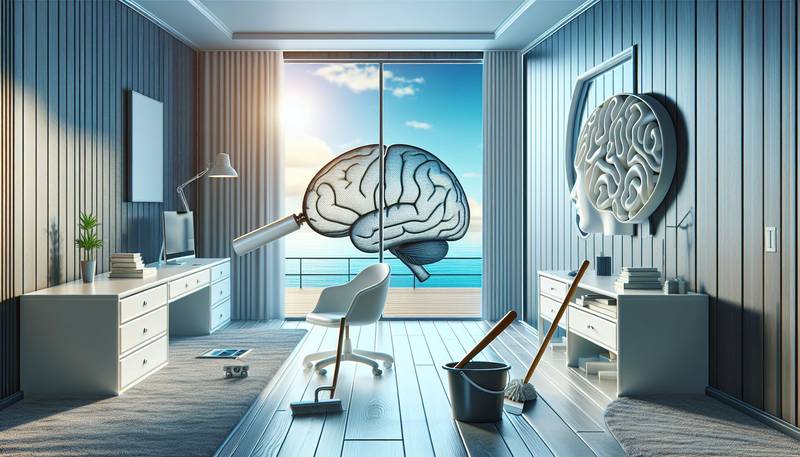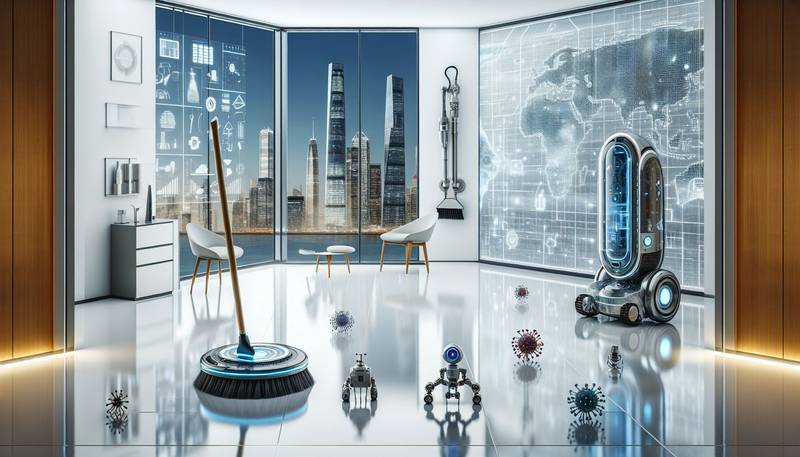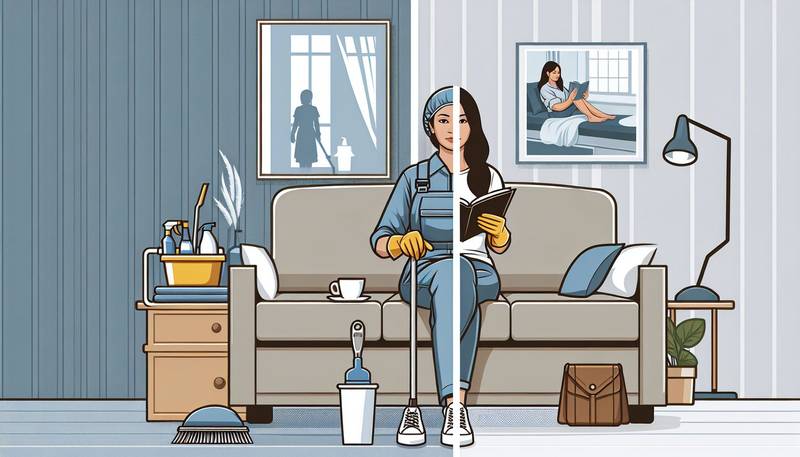The Psychology Behind Clean Spaces: What Every Cleaner Should Know
The state of our environment has a significant impact on our mental wellbeing, and this is where the psychology of clean spaces comes into play. Understanding the psychological factors that are at play when it comes to cleanliness can not only help cleaners do their job more effectively, but also help individuals create a space that promotes a sense of calm, productivity, and overall wellbeing.
The Impact of Clutter
One of the most obvious ways that cleanliness affects our mental state is through the presence of clutter. Clutter has been shown to increase stress levels, decrease productivity, and even contribute to feelings of anxiety and depression. When our physical space is cluttered, it can lead to feelings of being overwhelmed and out of control. This is why decluttering is often the first step in creating a clean and organized space that promotes mental wellbeing.
The Power of Organization
On the flip side, organization has the opposite effect on our mental state. When our space is tidy and organized, we are better able to focus, think clearly, and feel a sense of calm. This is because organization provides structure and a sense of control over our environment. By keeping objects in their designated places and maintaining a sense of order, we are better able to navigate our space and our thoughts.
The Importance of Cleanliness
Of course, cleanliness goes hand in hand with organization. A clean space not only looks visually appealing, but it also has a positive impact on our mental state. When our environment is clean and free of dust, dirt, and grime, we are able to breathe easier and feel more at ease. In fact, studies have shown that living in a clean environment can lead to improved mood, increased energy levels, and reduced feelings of stress and anxiety.
Creating a Calming Environment
For cleaners, understanding the psychology behind clean spaces is crucial for helping clients achieve a sense of calm and wellbeing in their homes or workplaces. By decluttering, organizing, and maintaining cleanliness, cleaners can create a space that promotes mental clarity, productivity, and overall happiness. It is not just about making things look tidy, but also about creating an environment that supports mental wellbeing.
The Emotional Benefits of a Clean Space
Aside from the physical benefits of a clean environment, there are also numerous emotional benefits that come along with it. Studies have shown that individuals who live in clean and organized spaces tend to experience reduced levels of stress and anxiety. The act of cleaning itself can be therapeutic, providing a sense of accomplishment and control over one's surroundings. This can lead to increased feelings of happiness and overall satisfaction with one's living or working environment.
The Psychology of Scent
Another important aspect of clean spaces that often goes overlooked is the role of scent in our psychological wellbeing. The presence of pleasant scents, such as those from freshly cleaned surfaces or natural air fresheners, can have a positive impact on our mood and emotions. Scents like lavender and eucalyptus are known for their calming properties, while citrus scents can help boost energy levels and mental clarity. By incorporating pleasant scents into a cleaning routine, cleaners can further enhance the psychological benefits of a clean space.
The Connection Between Physical and Mental Clutter
It is important to note that clutter is not just limited to physical objects in our environment. Mental clutter, such as a constant stream of thoughts and worries, can also have a negative impact on our mental wellbeing. Research has shown that external clutter can contribute to internal clutter, creating a cycle of chaos and stress. By decluttering our physical space and creating a clean and organized environment, we can also help declutter our minds and promote mental clarity.
The Art of Maintenance
Maintaining a clean space is a continuous process that requires ongoing effort and dedication. For cleaners, it is important to not only focus on one-time deep cleanings, but also on implementing routines and habits that promote cleanliness on a regular basis. By establishing a consistent cleaning schedule and incorporating small tasks into daily routines, cleaners can help clients maintain a clean and organized space that supports their mental wellbeing in the long term.
Conclusion
As cleaners, it is important to recognize the powerful impact that cleanliness and organization can have on our mental wellbeing. By understanding the psychology behind clean spaces, cleaners can not only do their job more effectively, but also help individuals create a space that promotes a sense of calm, productivity, and overall happiness. Cleanliness is not just about appearances, but about creating a space that nurtures our minds and our spirits. By decluttering, organizing, and maintaining cleanliness, both cleaners and clients can enjoy the many psychological benefits of a clean and organized environment.











